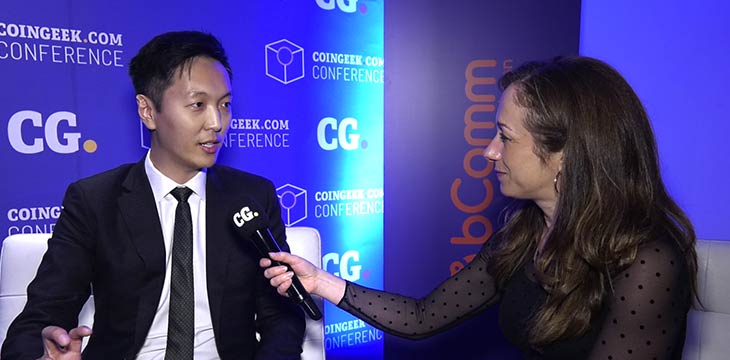
|
Getting your Trinity Audio player ready... |
As the cryptocurrency industry enters a new age, exchanges will need to adapt to the new world. Jack Liu, managing director of Circle, joined CoinGeek.com’s Becky Liggero to discuss how exchanges are currently addressing the many cryptocurrencies in the market, and the future of both cryptos and exchanges.
There are more cryptocurrencies and tokens than most people know what to do with right now, and quality control is an important factor. “I think exchanges should play a very strong role, especially in light of the fact exchanges are regulated financial institutions,” said Liu. “So as much as you’re weighing a balance here between offering coins that the market wants, while preserving sort of quality assurance.”
Circle decides if a crypto is worthy of making the cut by looking at all the information they can. “We at Circle have a very stringent digital asset listing program where a number of things, from the technical standards of a project, its history, its founders, and where they are on the delivery of milestones and what they’re trying to achieve,” Liu explained.
Liu really believes that cryptocurrency is in a transitional phase now, moving from its adolescence into adulthood. “I think that the first phase of our industry, because of that speculative fervor for the potential of blockchain technology, is you saw every traditional company or industry be reimagined as a new coin,” he noted. “And now we’re going to move into a more utility phase of the industry, where people are going to start using coins for these stated different applications.”
As some coins succeed and others fail, the cryptos with the best appeal will win out. Liu explained, “I think that you’re going to see a natural consolidation, not decided by exchanges, but decided by the user base of these activities to prefer one coin over more coins.”
This evolution doesn’t just apply to the product; it also applies to the vendors: exchanges. They too will need to change as the market grows up. “I think that exchanges are right on the cusp of having to innovate, because the easy money to make for exchanges is kind of over,” he said. “We saw the initial phase of exchanges cropping up everywhere, every country, every asset, and so there’s kind of an exchange for everyone’s demands.”
Some exchanges have approached the fiercer competition by throwing every feature at the wall to see what sticks. Liu feels that the better approach is to offer better quality. “Now that exchanges are scaling, especially with the consolidation of the market, you’re going to see exchanges professionalize in my opinion,” he said. “Users are going to demand a lot more of exchanges, from whether it being custody, self-custody solutions, they want to feel the assurance of professionalization instead of suites of tools.”

 11-22-2024
11-22-2024


